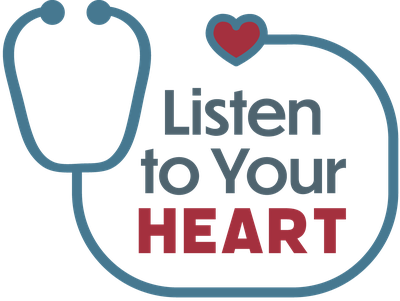
Cholesterol may have a bad reputation, but it's actually an essential ingredient for your body to function properly. Healthy levels of cholesterol depend on a person's sex and age. Here's what you need to know about normal cholesterol numbers by age.
What Is Cholesterol?
Video of the Day
In order to understand healthy cholesterol levels, it can be helpful to know a bit more about the different types of cholesterol and what they do in the body.
Video of the Day
Cholesterol is a waxy, fat-like substance critical for building healthy cells, according to Harvard Health Publishing. It's also used to make hormones (including estrogen and testosterone), vitamin D and certain digestive substances. But pure cholesterol can't travel through the body on its own. So, the liver creates protein-covered cholesterol particles called lipoproteins to get the cholesterol where it needs to go.
Low-density lipoproteins (LDL) are the so-called "bad" kind of cholesterol. At normal levels, this kind of cholesterol isn't actually bad, according to the American Heart Association (AHA). But if there is too much LDL cholesterol, it can join with other substances and create fatty deposits in the arteries. These buildups — called plaque — cause the arteries to become narrow and rigid, a condition called atherosclerosis. Atherosclerosis can lead to heart attack or stroke.
High-density lipoproteins (HDL) are the "good" kind of cholesterol. They help prevent plaque buildup by traveling through the bloodstream, picking up excess LDL particles and returning them to the liver for disposal, per Harvard Health Publishing.
There are other types of cholesterol as well, but HDL and LDL are the most important two to know about.
Healthy Cholesterol Numbers by Age
It's not just about how much HDL a person has. There are several other measurements clinicians use to assess a person's cholesterol and corresponding health risks.
Non-HDL levels are a person's total cholesterol minus their HDL level. This is not, however, equal to a person's LDL level. As mentioned, there are a few other types of cholesterol besides HDL and LDL. Though they play a more minor role in heart health, they are still important to measure when it comes to risk assessment. According to the Mayo Clinic, a non-HDL measurement appears to be a better risk predictor than simply measuring LDL levels.
Cholesterol is measured in milligrams per deciliter (mg/dL). The following are healthy cholesterol numbers by age for men and women, according to the U.S. National Library of Medicine:
Cholesterol Levels by Age Chart
Anyone age 19 and younger | Men age 20 or older | Women age 20 or older | |
Total Cholesterol | less than 170 mg/dL | 125-200 mg/dL | 125-200 mg/dL |
Non-HDL Cholesterol | less than 120 mg/dL | less than 130 mg/dL | less than 130 mg/dL |
LDL Cholesterol | less than 100 mg/dL | less than 100 mg/dL | less than 100 mg/dL |
HDL Cholesterol | more than 45 mg/dL | 40 mg/dL or higher | 50 mg/dL or higher |
As you can see, the difference between healthy cholesterol levels for men and women over 20 years old comes down to HDL cholesterol: Women have a slightly higher range for healthy HDL.
Cholesterol levels do tend to increase as a person gets older. But healthy cholesterol levels remain the same.
Why Cholesterol Levels Differ in Men and Women
Healthy cholesterol levels are the same for boys and girls through childhood. But this changes when puberty hits.
"Women have higher HDL cholesterol from puberty on. Boys have more testosterone, which lowers HDL," Robert Eckel, MD, professor of medicine, emeritus, at the University of Colorado, Anschutz Medical Campus, former president of the American Heart Association and president of the American Diabetes Association, tells LIVESTRONG.com.
Essentially, after puberty, women tend to have higher levels of "good" cholesterol than men. "Theoretically, this is why women live longer and tend to have heart attacks later in life [than men]," Dr. Eckel says.
Pregnant people or those taking hormone-replacement therapy (HRT) to manage menopausal symptoms tend to have higher average cholesterol, Dr. Eckel says. But this increase is actually caused by HDL, which can be quite high for these groups.
"It's important to understand that, if HDL is high, it's distributed in a form of cholesterol that we're not concerned about," he says. "In fact, it may be protecting women from the risk of heart attack, stroke or death from cardiovascular disease."
This is why understanding the difference between HDL and LDL is so important — simply having high total cholesterol may not be an issue if it's caused by elevated levels of good (HDL) cholesterol.
How Often Should You Get Your Cholesterol Checked?
The AHA recommends that everyone age 20 or older have their cholesterol checked every four to six years. After age 40, your doctor should assess your risk and determine how often you need to be tested. The U.S. National Library of Medicine says men over 45 and women over 55 should be tested every one to two years.
Be sure to speak with your doctor about testing your cholesterol. High cholesterol is often caused by poor lifestyle choices, according to the Mayo Clinic. Your doctor will look at all your risk factors (including age, sex, diet, exercise, obesity and smoking) and determine how closely your cholesterol needs to be monitored.
- Harvard Health Publishing: "How It’s Made: Cholesterol Production in Your Body"
- American Heart Association: "Control Your Cholesterol"
- Mayo Clinic: "Cholesterol Ratio or Non-HDL Cholesterol: Which Is Most Important?"
- U.S. National Library of Medicine: "Cholesterol Levels: What You Need to Know"
- American Heart Association: "How to Get Your Cholesterol Tested"
- Mayo Clinic: "High Cholesterol"
- National Institutes of Health: Your Guide to Lowering Your Cholesterol
- Harvard Women's Health Watch: 5 Tips to Increase HDL Cholesterol
- Mayo Clinic: Cholesterol in the News: Answers and More Questions
Was this article helpful?
150 Characters Max
0/150
Thank you for sharing!
Thank you for your feedback!
Is this an emergency? If you are experiencing serious medical symptoms, please see the National Library of Medicine’s list of signs you need emergency medical attention or call 911.
